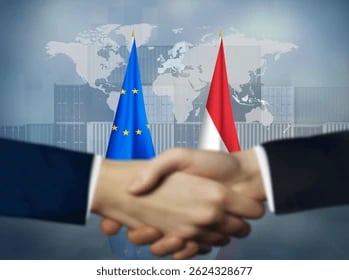How the EU Green Deal Affects Organic Exporters from Indonesia
As the global demand for organic products continues to grow, exporters from Indonesia—particularly in sectors like organic coconut products, spices, and sustainable agriculture—are increasingly looking to the European Union (EU) as a major market. However, entering and remaining competitive in Europe now comes with a new set of challenges and expectations, largely driven by the EU Green Deal. This article explores how the EU Green Deal is impacting Indonesian organic exporters, what businesses need to prepare for, and how to turn these environmental regulations into long-term opportunities.
Admin
6/8/20252 min read


What Is the EU Green Deal?
The European Green Deal is the EU’s strategic roadmap to become climate-neutral by 2050. This plan includes sweeping regulations on:
Sustainable agriculture
Carbon footprint tracking
Deforestation-free supply chains
Circular economy principles
Pesticide and fertilizer reduction
For food and agricultural exporters, this means stricter requirements on sustainability, traceability, packaging, and emissions transparency.
How It Affects Indonesian Organic Exporters
1. Tighter Traceability Requirements
EU importers now demand full transparency of supply chains—from farm to shelf. Organic producers in Indonesia must:
Maintain detailed farm-level documentation
Use digital traceability systems
Ensure third-party certification from EU-recognized bodies (e.g., for EU Organic, JAS, USDA Organic)
2. Sustainability & Emission Declarations
Buyers increasingly ask for:
Carbon footprint reports per shipment
Evidence of low-emission transportation and production
Use of renewable energy or eco-friendly processing
Producers who process using biomass, solar dryers, or clean production methods gain a competitive edge.
3. Deforestation-Free Certification
Products such as coconut, cocoa, or palm derivatives now face scrutiny under EU Regulation on Deforestation-Free Products (EUDR). Exporters must prove that raw materials:
Come from non-deforested areas
Were harvested using eco-compliant farming practices
Are audited and geo-verified
Opportunities for Proactive Exporters
Rather than seeing the Green Deal as a barrier, exporters can leverage it to increase credibility and market share. Here’s how:
Highlight “Green Farming” practices: Agroforestry, organic fertilization, and sustainable harvesting
Upgrade packaging: Use compostable, recyclable, or minimalist materials
Partner with sustainable logistics providers
Invest in ESG (Environmental, Social, Governance) programs to build trust with buyers
Steps to Prepare for Compliance
RequirementWhat to DoEU Organic CertificationWork with EU-accredited certifiers such as Ecocert, Control UnionTraceability SystemImplement digital farm-to-factory tracking softwareEmission TransparencyConduct basic carbon assessment of your supply chainPackaging ComplianceShift to eco-packaging and declare material contentLegal & Documentation ReviewWork with trade consultants or legal experts on EU customs updates
How PT Linggau Jaya Eksportir Responds
At PT Linggau Jaya Eksportir, we are already aligned with the EU’s sustainable trade direction. Our response includes:
Full traceability systems for organic coconut sugar, virgin coconut oil, spices, and desiccated coconut
Certified organic farms and facilities
Eco-friendly processing with minimal carbon output
Flexible private labeling with recyclable and compostable packaging
Conclusion: Be Ready for a Greener Future
The EU Green Deal is not just a trend—it’s a structural shift in how Europe imports and consumes food. Indonesian exporters who act early, adapt quickly, and invest in sustainability will be the ones to thrive.
If you're looking to export EU-compliant organic products, we’re ready to assist you every step of the way—from certification to logistics.
📨 Contact us at: contact@llgexport.com
🌐 Website: www.llgexport.com
PT Linggau Jaya Eksportir – Delivering Sustainable Excellence from Indonesia to the World



